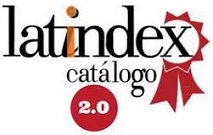Calibrin®-Z disminuye los efectos negativos de múltiples micotoxinas: aflatoxinas, fumonisinas y toxina T-2 en pollos de engorda
Palabras clave:
Micotoxinas, Aflatoxinas, Pollos de engordaResumen
Multiple mycotoxins naturally produced by fungus usually coexist in grains. Calibrin-Z® (Amlan International, Chicago, IL, available in select international markets) is a calcium montmorillonite that has been shown to bind toxins. A total of 240 one-day-old male Cobb 500 broiler chicks with an average weight of 44.67 g was used in a 21-day experiment to evaluate the effect of Calibrin-Z and Product Y on chicks fed a diet contaminated with multiple mycotoxins. A completely randomized trial was conducted with 4 treatments in 6 pens per treatment and 10 birds in each pen. Statistical analysis was conducted using the Student T test in JMP software v15.0. Statistical significance was set at P<0.05. The treatments were: 1) Unchallenged control; 2) Challenged control with 1.8 ppm Aflatoxins, 50 ppm Fumonisin and 1 ppm T-2 Toxin; 3) Challenged control with 0.5 % Calibrin-Z; and 4) Challenged control with 0.5 % Product Y. The diet was corn-soybean meal-based and met the requirements in the Cobb Broiler Management Guide. No major mycotoxins were detected when raw materials were screened. Birds fed multi-toxins with Calibrin-Z, but not Product Y had higher 21 d BW than birds fed diets with multi-toxins alone (P<0.05), 575 g vs. 512 g, while the unchallenged control had the highest body weight (748 g, P<0.05). Feed intake at day 21 followed the same pattern as BW (P<0.05). Feed to gain increased with the multi-toxins challenge from 1.537 to 1.699 (P<0.05), Feeding Calibrin Z, but not Product Y, resulted in a F:G that was not different from the unchallenged control (1.638, P>0.05). Relative liver weight was higher (P<0.05) in the challenged control (5.01 %) compared to the unchallenged control (2.84 %), and Calibrin-Z (4.46 %) but not Product Y (5.12 %) (P<0.05). Blood was collected on d 21 and serum was analyzed for malondialdehyde (MDA, mg/g protein) and total protein. Calibrin Z (4.81) and Product Y (4.37) groups decreased (P<0.05) serum MDA vs. multi-toxins challenge group (7.31). For serum total protein, only Product Y show an improvement, 3.91 vs. 2.19 (P<0.05). In conclusion, adding Calibrin-Z but not product Y to a diet containing multi-toxins improved weight gain, feed intake, and relative liver weight compared to the challenged control.
Descargas
Publicado
Cómo citar
Número
Sección
Licencia
Derechos de autor 2025 Sociedad de Medicina Veterinaria del Uruguay-Facultad de Veterinaria, Universidad de la República

Esta obra está bajo una licencia internacional Creative Commons Atribución 4.0.











